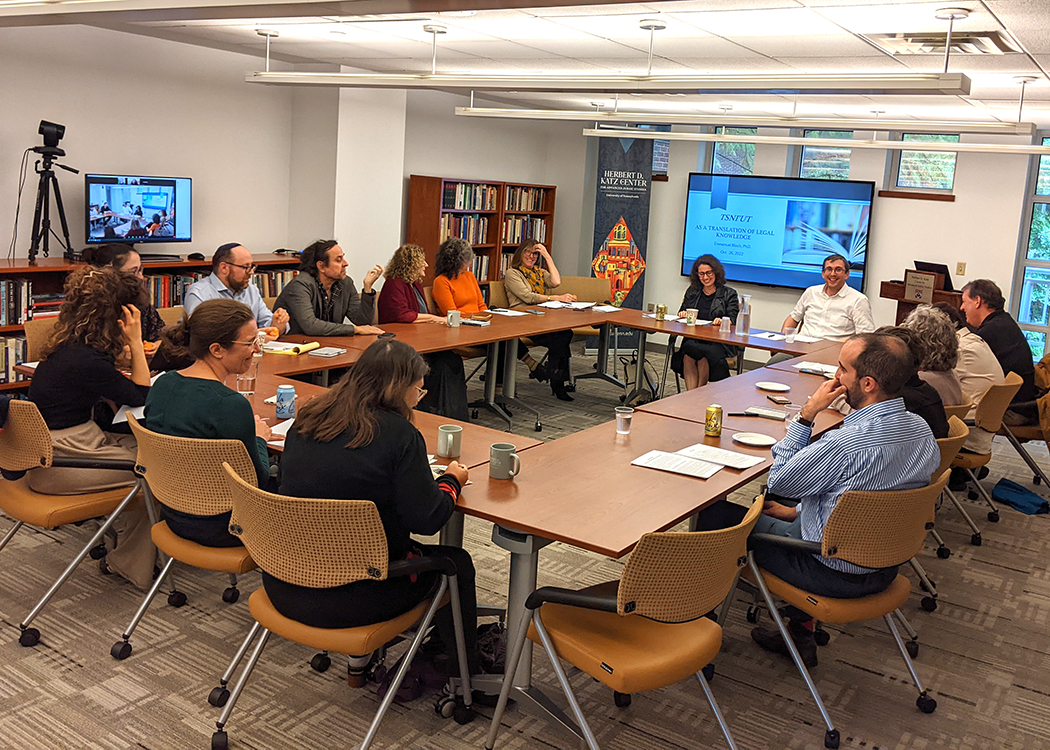Katz Center–Supported Scholarship Recognized in the National Jewish Book Awards
We are thrilled to learn that scholarship supported by the Katz Center has been recognized by the National Jewish Book Awards.
We are thrilled to learn that scholarship supported by the Katz Center has been recognized by the National Jewish Book Awards.
Natalie Dohrmann (NBD): Hannah, tell us a bit about your scholarly interests, what drew you to them, and what especially excites you about them personally and/or intellectually?
We are proud to celebrate a year of new books in the Jewish Culture and Contexts series published by the University of Pennsylvania Press.
JQR 113.3 is now available, online and in print.
In this issue:
Barry Wimpfheimer shows that the Mishnah stacks legal couplets like building blocks to produce ever-richer conceptual understandings and train the reader to mine it for such meaning.
 During the 2022–23 fellowship year, the Katz Center turned its attention to the study of law between the eighteenth and twenty-first centuries, an age of transition from a world of empires to the modern age of the nation-state and international law.
During the 2022–23 fellowship year, the Katz Center turned its attention to the study of law between the eighteenth and twenty-first centuries, an age of transition from a world of empires to the modern age of the nation-state and international law.
In March of 2023, the Katz Center was honored to inaugurate a new series in memory of Katz Center Board of Advisors member Howard Jay Reiter.
JQR 113.2 is now available, online and in print.
In this issue:
Jonathan Kaplan’s research note suggests that tannaitic legends about Serah, the long-lived daughter of the patriarch Asher, derive from much earlier tradition, likely Second Temple–era in origin.
Steven Weitzman (SW): Can you tell us about your research on ultra-Orthodox Judaism and philosophy?
Steven Weitzman (SW): Elisabeth, thank you for contributing so much to our fellowship program this last semester. You came to the Katz Center to do research on something that you refer to as the “New York Black Book of 1946.” Can you tell us a bit about what this text is and what led you to investigate it?
The study of Jewish law has deep roots in Jewish history. With due respect to philosophers and mystics, halakhists assumed a position of millennial dominance in Jewish intellectual culture from the destruction of the Second Temple to the Paris Sanhedrin in 1808. The study of Jewish law did not disappear but became a subsidiary field of the larger project of modern Jewish studies—from the Wissenschaft scholars Zecharias Frankel, I. H. Weiss, and D. Z.